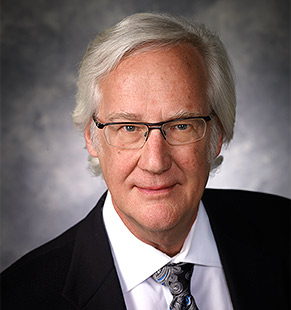Dr. James C. Bartlett
- Former Professor of Cognitive Neuroscience and Cognitive Psychology
- Ashbel Smith Professor (Former)

The University of Texas System supports the professorship.
“I want my research to help people, but at the same time, I’ve always had an instinctive desire to discover things. I tell my students it’s like Christmas morning when they come in with new data from a completed experiment. I don’t know where that comes from, it’s just instinctive – it’s the kind of thing that brings me joy.”
In memory of Dr. James C. Bartlett
September 1, 1948-June 1, 2019
Bartlett’s research explored the manner in which people perceive and remember complex things from everyday life, such as faces, visual scenes and melodies. He examined whether people see and remember the individual components of an environment or whether they have a holistic view, remembering them as single units.
This work placed Bartlett in the ranks of the avant-garde researchers in several fields, including the reliability of eyewitness testimony in the elderly and the processing of non-verbal memory. He was one of the first people to provide solid behavioral evidence that the brain processes faces differently from other objects.
“I think way too often in science people research things because other people are researching them. However, it is not that hard to just open your eyes and say, ‘Here’s a problem someone should be working on, even though no one is,’” Bartlett said.
A Fellow of the Association for Psychological Sciences, he served as the area and doctoral program head for cognition and neuroscience in the School of Behavioral and Brain Sciences. His commitment to mentorship in the sciences was evident in the 18 master’s and 13 doctoral theses he supervised.
Bartlett received a bachelor’s degree in psychology from UT-Austin in 1970, followed by a doctoral degree from Yale University in the same field in 1975.
He began teaching at The University of Texas at Dallas in 1975 and was promoted to full professor in 1990. Bartlett served as the interim dean of the School of Behavioral and Brain Sciences from 2015 to late 2018.